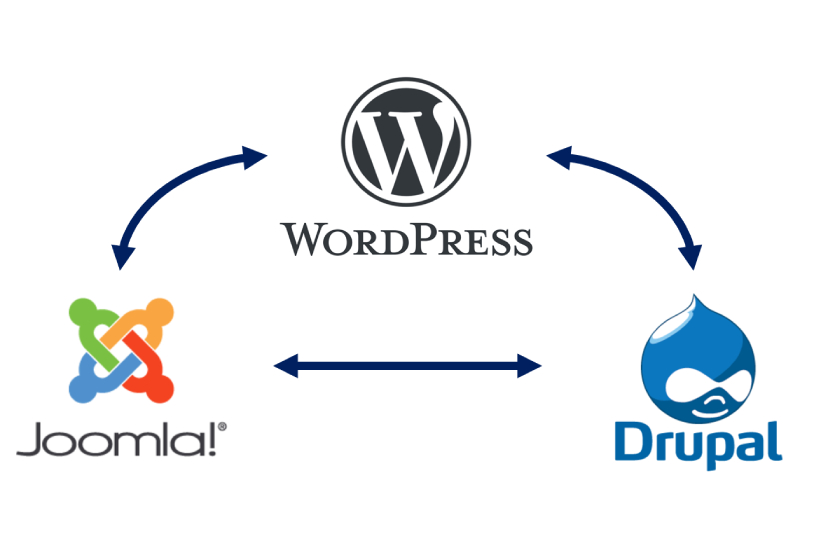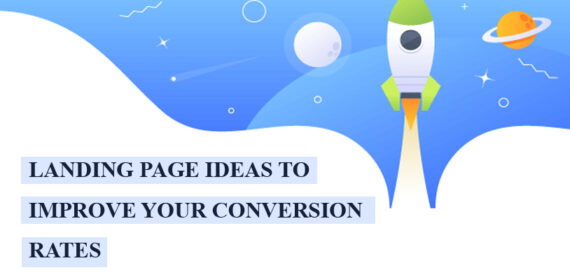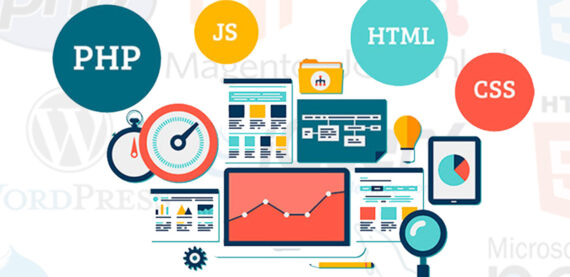In this article, we will compare WordPress vs. Joomla vs Drupal to find out which one is the good choice for you.
What’s Common in WordPress, Joomla, and Drupal?
WordPress, Joomla, and Drupal are all free and open-source software licensed under GPL.
They all keep up MySQL as their database management system. WordPress exclusively supports only MySQL, while Joomla and Drupal carry further database management systems.
All three of them use themes and templates for the visual appearance of sites, and plugins, modules, or extensions for extending features.
For sample, they have different policies about what to include in the core software, how to handle modules and templates, how to deal with security, etc.
These differences make a huge impact on users, and how they build their websites.
As open source software, they are all community-driven projects, while there are a lot of similarities; they are different in many aspects.
Having that said, let’s take a look at how WordPress, Joomla, and Drupal compare to each other, so you can choose the good website builder platform for your business.
Ease of Use and Beginner Friendliness
Most people designing their websites are not web developers, designers, or programmers. They are average users who just want to design a website. Ease of use is the most important factor for the majority of users.
WordPress
WordPress comes with a famous five-minute install. Most WordPress hosting providers also offer one-click installs of WordPress. This makes it fairly simple for a new visitor to start a WordPress blog or website in minutes, not hours.
The post-install user experience of WordPress is way superior than Joomla or Drupal. The user sees a simple clean-cut user interface with the menus to build posts, pages, or start customizing appearance and themes.
Joomla
Joomla installation may not look as fast as WordPress, but it has very similar steps. Apart from that many shared hosting suppliers offer one-click install packages for Joomla as well.
After the installation, the user lands on a control panel that is not as straightforward as WordPress. There are just too many menus to click on and customize your own site.
Drupal also offers distributions. These are pre-packaged Drupal bundles with modules and configurations to build specific types of websites.
The post-installation experience for absolute starter is a bit complicated. Viewers will find it difficult to figure out how to change things on their site.
Drupal makes it very obvious how to add the content, but changing appearance and attach non-content elements is not very obvious.
Best: WordPress
Themes and Addons
All three of these familiar CMS come with themes and plugins/modules as a way to extend the features and appearance of the software.
Themes control the appearance of your website and how it looks to your visitors. Plugins or Modules are such as apps for your CMS.
Let’s see how these three main CMS software performs in this category.
WordPress
WordPress allows visitors to change their site’s appearance using themes.
WordPress comes with a little default themes pre-installed.
At anytime, anywhere you can click on the add new button from your Appearance page and install free WordPress themes from the official WordPress.org theme directory.
Apart from free themes, you will find many more premium WordPress themes developed by third-party theme shops like StudioPress, Astra Theme, Elegant Themes, and more. These are reward themes and come with premium support options.
The original power of WordPress lies in plugins. There are more than 50,000 WordPress plugins available for free in the official WordPress plugin directory.
You can also purchase premium plugins that come with paid support provided by plugin developers. Check out our list of must-have WordPress plugins to see how plugins made WordPress awesome.
Joomla
Just like WordPress, Joomla also comes with templates and extensions. There are best extensions to do just about anything from creating an eCommerce store to managing email.
However, the quantity of these templates and extensions is not as big as WordPress. This could make discovering the perfect template and the perfect extensions a bit difficult.
By default, Joomla does not have a feature that would allow visitors to search and install extensions or templates from the administration area.
There is an extension that permits you to add the “install from web” feature for extensions. But for templates, users will still have to manually search templates and then install them by attaching their URL.
Drupal
Drupal has the same issue with the obtainability of themes and modules. Visitors will have to leave their site, search for the module and theme they want to add, and then locate the project’s zip file URL.ultimately, they can enter the URL in the Modules or Themes page to install them.
There are modules to do just about anything and new ones are added always. Still, the overall quantity of modules is requiring when differentiate to WordPress.
Best: WordPress.
Support Options
The availability of help and support options is very major for beginner users. There will definitely be some hurdles when you are trying trendy software. That’s ok as long as you can gain help out.
WordPress
WordPress has a strong community of visitors. You can discover WordPress help on official support forums, docs, handbooks, codex, Slack channels, Stack Exchange, WPBeginner Engage Facebook group, and almost every forum on the internet about web design and development.
There are sites such as WPBeginner, containing hundreds of tutorials, video tutorials, and articles catering to beginner-level WordPress users. There are many methods to ask for free WordPress support and get it.
Apart from the free support options, there are ways to earn paid support for WordPress as well.
Online platforms like Codeable, UpWork, Fiverr, etc. are just some of the places where you can hire WordPress professionals to assists you. Due to the immense popularity of WordPress, finding WordPress developers is simple and affordable for small businesses and individuals.
Joomla
Joomla, just like WordPress has a large and very pleasant community. There is extensive documentation on the Joomla website which is a valuable resource for starters. For more interactive support, viewers can join forums, mailing lists, user groups, etc.
Apart from community support, there are unauthorized resources, paid training and development agencies that can be helpful.
Unlike WordPress, finding affordable expert assist is quite difficult for Joomla. Hiring a web developers or experts for Joomla development, troubleshooting or assistance can cost way more than WordPress.
Drupal
Drupal has a very proactive community of fans and users. You will notice all the community support options for Drupal just like WordPress and Joomla. There is extensive documentation, support forum, mailing lists, user groups, and IRC chatrooms. All best places to gain advice and free help.
Conclusion:
Drupal, Joomla, and WordPress are all remarkable content management systems. Drupal and Joomla come with many more design-in features than WordPress.
However, WordPress beats them with its ease of use, large global community, plugins, and themes. We feel that most non-developer visitors would find it much easier to build with WordPress than Joomla or Drupal.









































